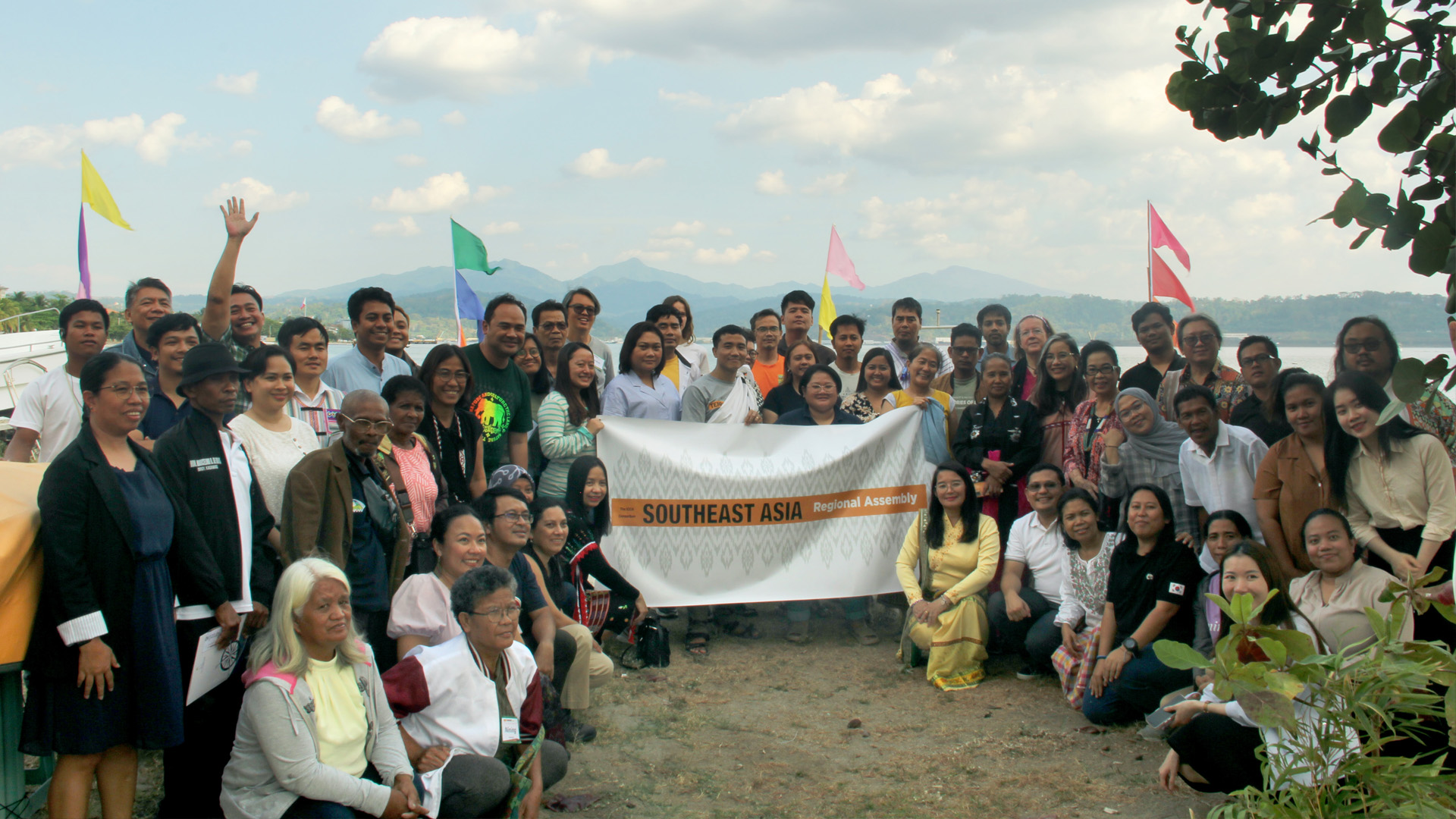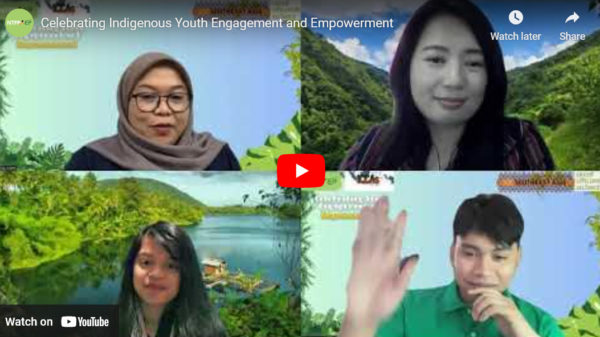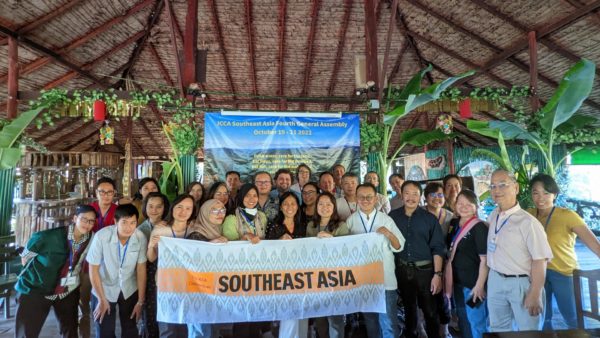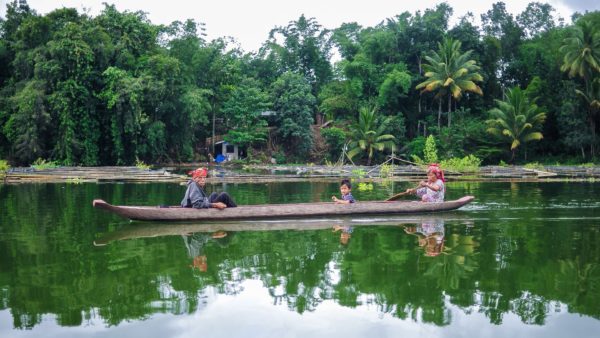The fifth regional assembly of the ICCA Consortium Southeast Asia took place on March 8, 2024, in Subic, Philippines
First published on 05/02/2024, and last updated on 05/06/2024
By ICCA Consortium Southeast Asia
With more than sixty participants, the regional meeting of the members served as a safe space to create momentum among the members and strengthen solidarity, mutual learning, and organizational capacity. The assembly sent a solid message to provide more opportunities and space for Indigenous Peoples and local communities to participate in the ICCA Consortium Southeast Asia in the future.
It was the fifth regional assembly of the ICCA Consortium Southeast Asia.
Representatives of thirteen Member organizations and ten individual Honorary members in the region attended the assembly. The Aeta Indigenous People, particularly from Kanawan and Pastolan, played a significant role in the discussions and outcomes of the assembly, enriching it with their unique perspectives and experiences. Their active participation and a warm welcome to their ancestral territory in Subic underscored the diverse and inclusive nature of the ICCA Consortium Southeast Asia.
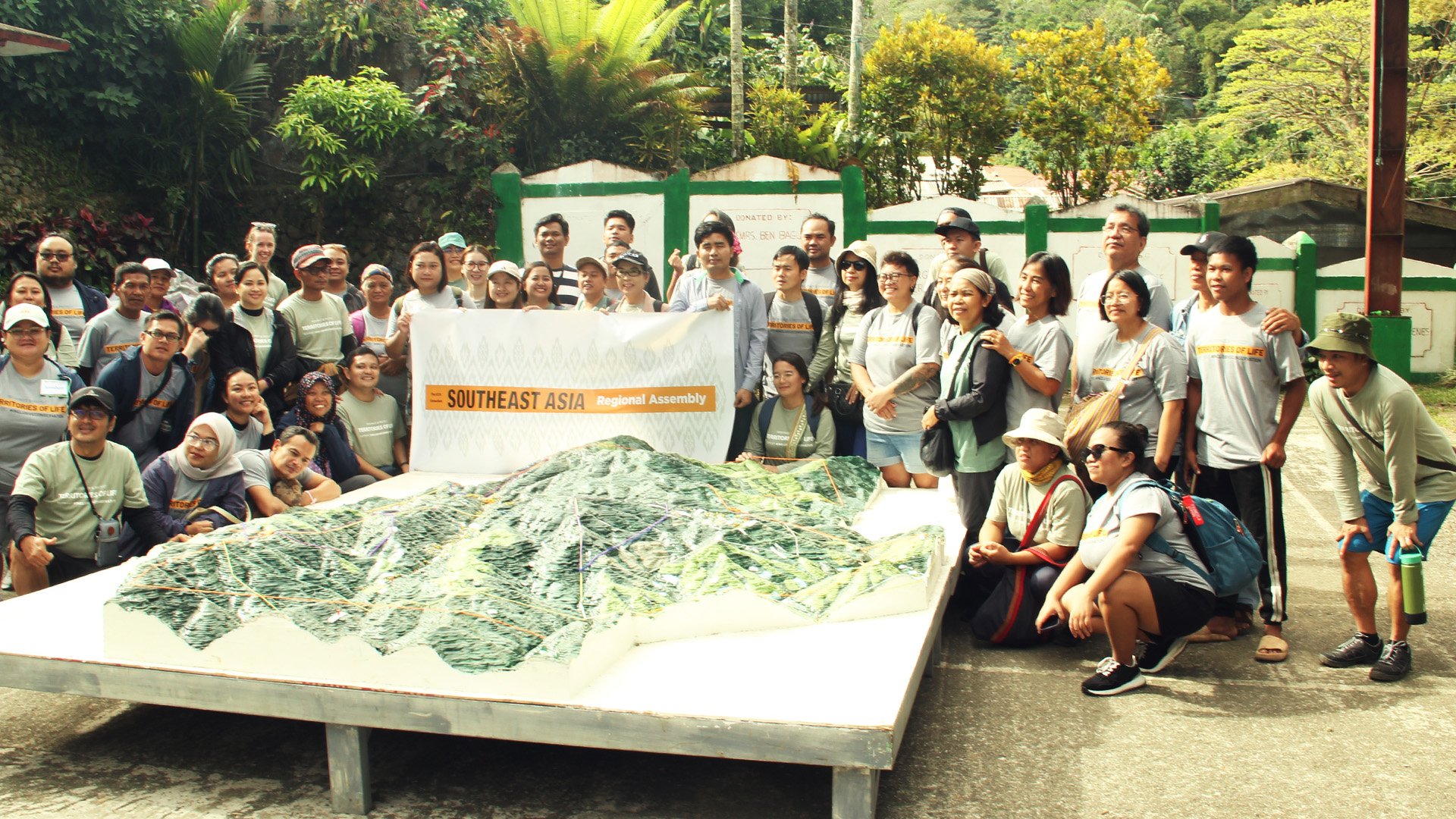
The assembly’s programs were designed to deliberate on issues related to enhancing the capacity of the members in three key areas: advocating for ICCAs—territories of life through advocacy training, documenting territories through mapping and documentation training, and sustaining the territories through mutual learning between members.
Annual Report
The assembly commenced with a summary of the annual report presented by Paul Sein Twa, the president of the ICCA Consortium Southeast Asia Council.
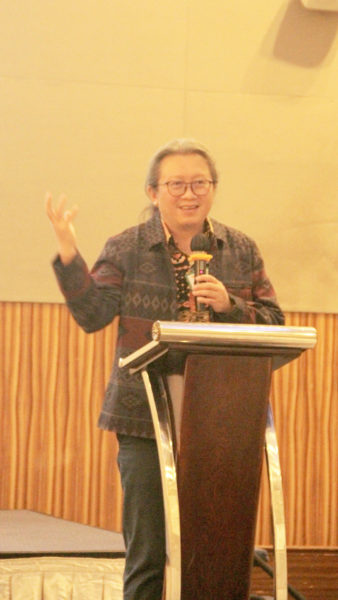
The report outlined the council’s current structure, which includes a president, a vice president, country representatives, and thematic leads for documenting, defending, and sustaining territories of life, as well as gender and youth themes. The report also highlighted the role of country focal points as communication bridges between the coordination team and the Member organizations in each country, providing a clear understanding of the organization’s leadership and communication channels.
The regional coordination team is the secretariat assisting the council and the regional assembly. It is hosted by the Non-Timber Forest Exchange Programme (NTFP-EP) Asia, a member of the ICCA Consortium. The team comprises the regional coordinator and advocacy coordinator, with support from NTFP-EP staff, including the executive director and the program officer for community-based conservation.
In his report, Paul noted that, in 2023, seventy percent of the funds spent by the region were raised regionally, independent of the global Consortium.
Femy Pinto, executive director of NTFP-EP, helped Paul present a summary report on the Pastor Rice Small Grants Fund, which contributes to and supports Consortium members in Southeast Asia through small and quick-response grants.
“Pastor Rice Fund funds ICCA members in Southeast Asia, including our members in Indonesia, the Philippines, and Cambodia. The fund was created to continue the legacy of Pastor Delbert Rice, an adopted son considered a founding father of the Kalahan Forest Reserve and Kalanguya-Ikalahan Ancestral Domain,” explained Femy.
Reports on thematic works
After the president’s report, the reports on thematic work were presented. Cindy Julianty, Advocacy coordinator of ICCA Consortium Southeast Asia, and Gordon John Thomas of PACOS Trust, the thematic lead of “defending ICCAs,” presented the Defending Territories of Life Report.
Cindy said 2023 was “quite a busy year” for the ICCA Consortium Southeast Asia.
“We were quite active in carrying out mutual learning through webinars and capacity building. We are also involved in several negotiation processes on international agreements such as CBD, including SBSTTA-25, Article 8j, and Equitable Partnership Target 3, as well as negotiations on UNFCCC climate commitments through our involvement in SB58 and COP-28.”
“We interpret our presence in these processes as an effort to encourage recognition of territories of life and increase our capacity related to advocacy and international agreements that impact territories of life.”
Gordon added, “The strategy we are implementing to strengthen the defense of ICCAs in the future is also through increasing capacity and a cross-issue approach so that we also try to see opportunities in other international and regional policies in Southeast Asia through the issues of biodiversity, climate, business, and human rights, certification (RSPO), and Environmental Human Rights Defenders.”
“This year, we will continue our collaboration to carry out collective advocacy with other alliances such as AIPP, Women4Biodiversity, CSO Forum, International Land Coalition, Rights and Resources Initiative, and the ASEAN Center For Biodiversity (ACB).”
After that, Norli continued her report as thematic lead for Sustaining ICCAs. She delivered the sharing about the sustainable harvesting and trading of almaciga (Agathis philippinensis resin) by the Pala’wans/Pelawan and the traditional food processing livelihoods of Higaonon in Bukidnon and sharing the process of listing non-timber forest products to assess the availability and sustainability of the raw materials for potential product development.
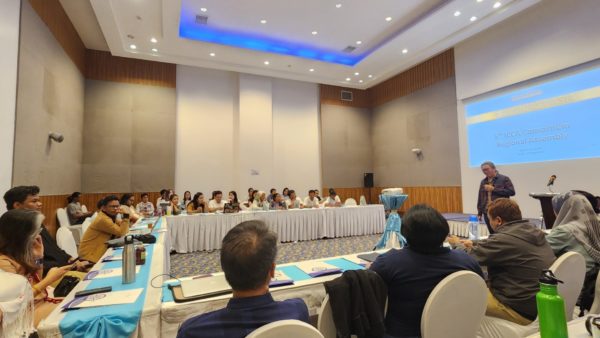
Eh Htee Wah, the regional council member for the youth theme, presented the Youth for Territories of Life report. She conveyed the challenges in leading this thematic as a new thematic issue for the ICCA Consortium.
However, she also conveyed several activities carried out with youth to celebrate International Youth Day and International Day of the World’s Indigenous Peoples and regional youth camps. On the sidelines of ICCA documentation training activities, representatives of youth members gathered to discuss how to strengthen solidarity between ICCA Consortium Southeast Asia members in maximizing the role of youth in mainstreaming the issues of defending, sustaining, and documenting ICCAs.
June Rubis, the regional council member for “documenting territories of life,” presented the report on the theme. June explained the relationship between documenting territories of life and the global strategic plan to encourage appropriate interventions. She said that documentation of territories of life is crucial as a strategy and communication tool to encourage visibility and support for community contributions to conservation and biodiversity.
She also emphasized that documenting territories of life is a critical task that is very synergistic with advocacy, so it should not be a separate concentration. At the regional level, there is a great desire to provide an ICCA data consolidation platform in Southeast Asia, which is one of the priority agendas that was also mandated by the previous regional assembly, including increasing capacity, learning, and assistance from countries that have been advanced in implementing documentation and administering their database into digital platforms, such as the case for Indonesia and the Philippines.
The global ICCA Consortium council president, Teodoro Brawner Baguilat Jr., also delivered brief remarks to the assembly. “Teddy,” as popularly known, belongs to the Tuwali tribe of Ifugao and the Gaddang Tribe of Nueva Vizcaya provinces in the northern Philippines. In his remarks, Teddy talked briefly about the recently adopted manifesto for territories of life and the newly drafted Strategic Plan 2024-2028 of the ICCA Consortium.
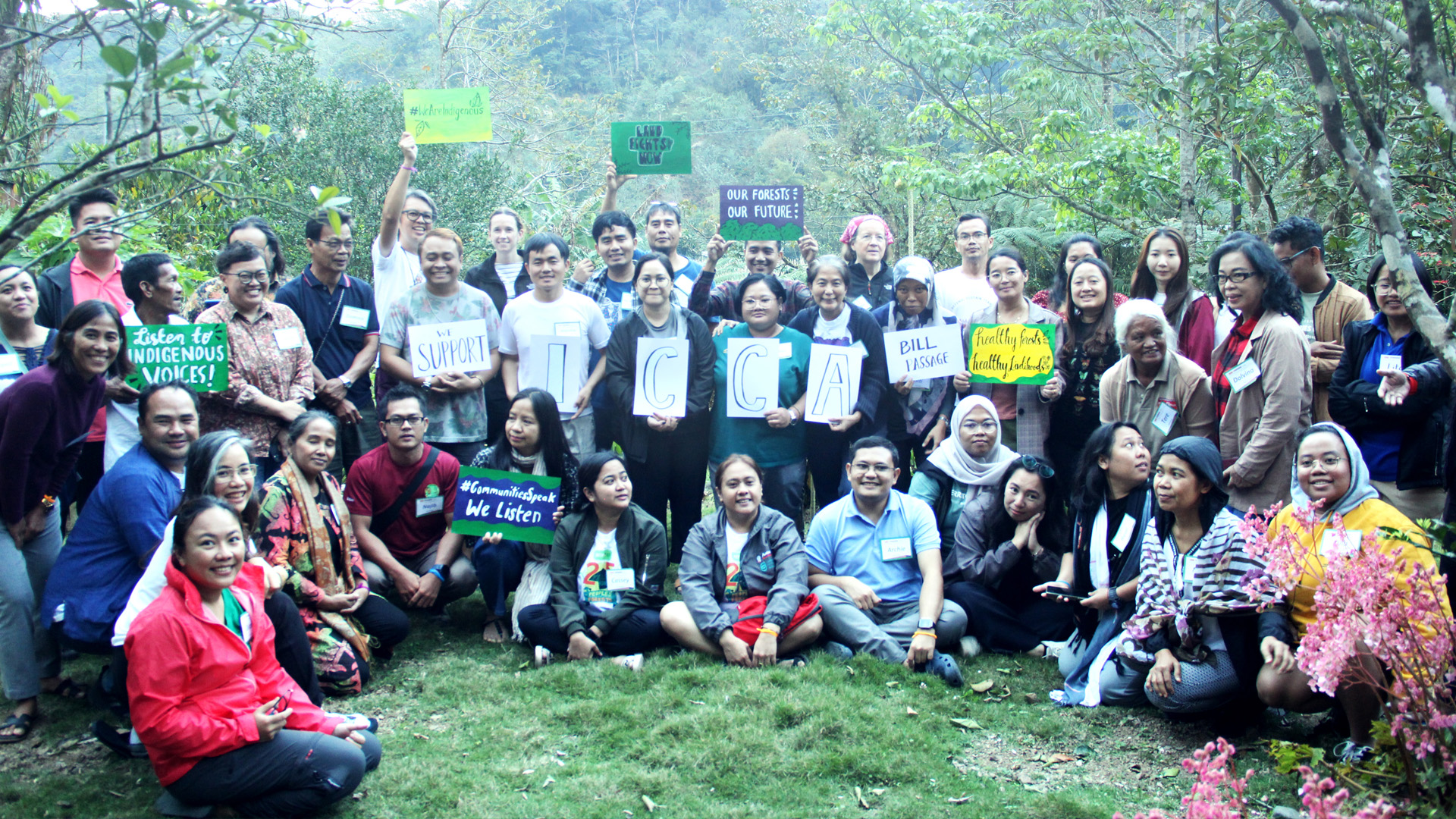
Discussions on global and regional strategic plans and funding mechanism
Regional and global council member June Rubis delivered a presentation about the ICCA Consortium’s global Strategic Plan 2024-2028. As regional coordinator, Amy Maling presented a five-year strategy for ICCA Consortium Southeast Asia (2022-2027). “We shall remember our vision and collective homework. “ICCAs in Southeast Asia are appropriately and fully recognized and strengthened by community custodians in their exercise of self-determination and ensuring the continuity of territories of life,” she added.
During the second half of the day, some participants volunteered to discuss the need for direct funding to Indigenous Peoples and local communities and Indigenous and local communities. The discussion pointed out that the global funds hosted and managed by the UN organizations and related financial institutions officially dedicated to Indigenous Peoples and local communities are not reaching them directly and, thus, are ineffective in addressing the needs of communities in the territories of life.
Neville Yapp of Land Empowerment Animals People-LEAP Trust pointed out that to be effective and beneficial for nature conservation led by Indigenous and local communities, such global granting mechanisms should adopt improved and responsible financing and reporting processes.
Philippine ICCA Consortium–Bukuran President Giovanni B. Reyes proposed establishing a new ICCA—territories of life fund for Southeast Asia.
Country-level action plans
The assembly discussed country-level action plans as part of the region’s ongoing process of integrating and creating synergies among the Consortium’s national, regional, and global action plans/work plans. Major thematic working areas are documenting, sustaining, and defending territories of life, youth, and gender.
The Philippines ICCA Consortium—Bukluran plans to strengthen the national network’s secretariat by establishing a full-time secretariat to support its work. Bukluran also intends to initiate a fund for urgent grants to environmental defenders in Indigenous and traditional communities.
PanNature, the national focal point in Vietnam, led the action plan for the country’s ICCAs—territories of life. Their plan prioritizes advocating for laws and policies recognizing and strengthening territories of life nationally.
The Country Action Plan for Myanmar includes significant activities such as facilitating peer learning among Indigenous Peoples and local community organizations and documenting territories of life.
The Consortium’s Member organizations in Malaysia prioritize establishing a national working group on ICCAs. Malaysian members are also working on improving the quality of documenting territories of life and enabling more communities to document their territories.
In Cambodia, members prioritize activities to establish a national ICCA working group and develop a national registry for ICCAs—territories of life.
The Working Group ICCAs Indonesia (WGII) prioritizes and facilitates the community-led process of documenting and registering their ICCAs—territories of life through the new ICCA Custodian Network. WGII’s other priorities include developing biodiversity and carbon accounting projects and advocating recognition of territories of life in Indonesia.
Recommendations
President of the regional council Paul Sein Twa presented the recommendations from the meeting. The recommendations are as follows:
- The ICCA Consortium Southeast Asia encourages the global ICCA Consortium to have an international policy coordinator in the global secretariat who can be a bridge and craft collective advocacy among regions.
- Work towards regional financing and funding modalities partnership principles.
- Continue the initiative to build a digital database of ICCAs-territories of life in Southeast Asia and support and strengthen the national ICCA registry platform.
- Continue to strengthen the regionalization process and regional secretariats.
- Continue documentation of territories of life in various formats.
- Organize more peer-to-peer learning exchanges, including fundraising.
- Finalizing the regional advocacy roadmaps.
- Increase the membership of ICCA Consortium Southeast Asia (Sixty percent of the members should be organizations of Indigenous Peoples and local communities).
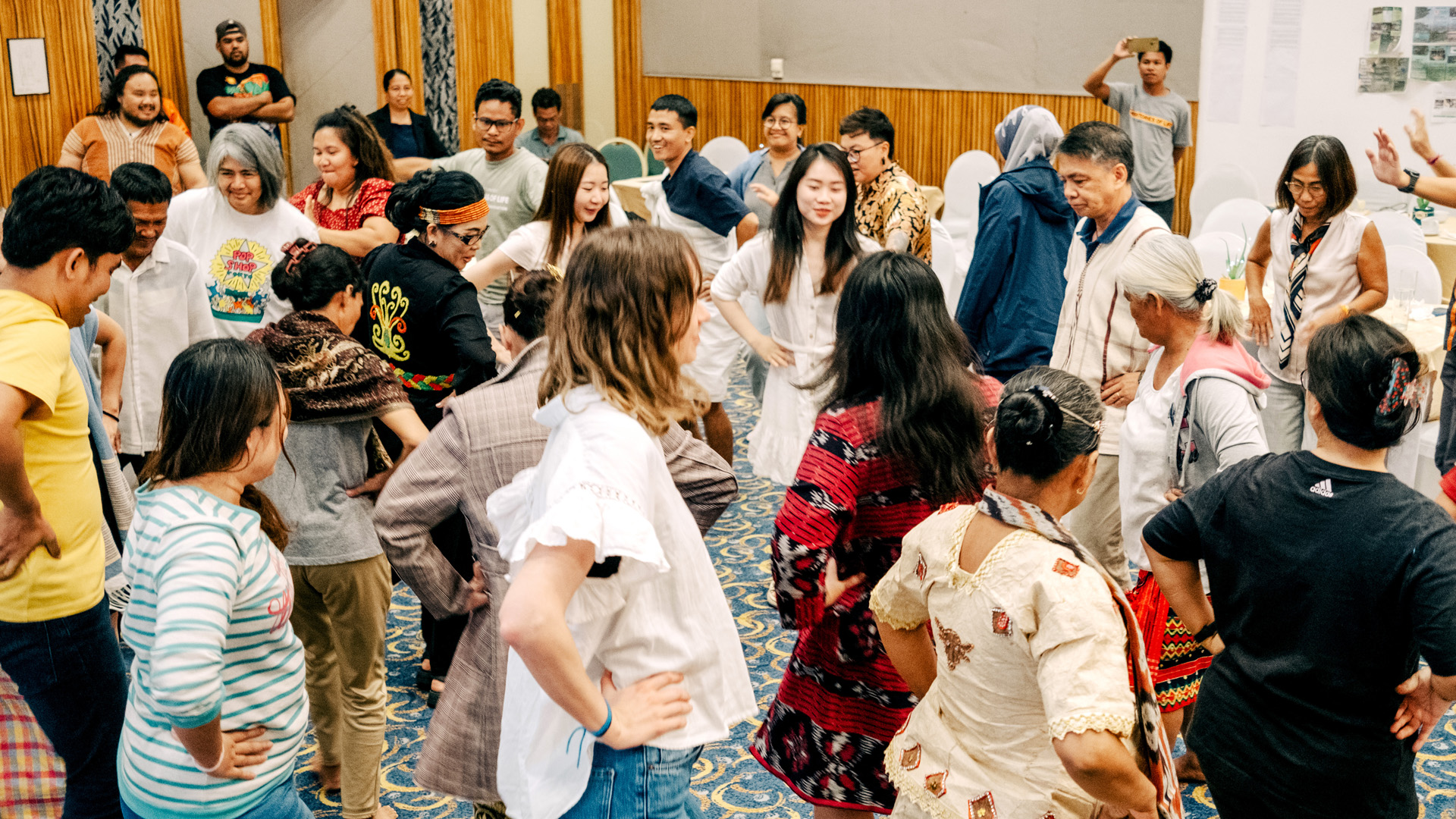
Closing and farewell to Amy Maling
In the closing session, outgoing regional coordinator Amy Maling said that the ICCA Consortium Southeast Asia was still working to finalize and sharpen the action plan for 2024.
“We all already have a reference, i.e., the strategic plan of the global Consortium and strategic plan of ICCA Consortium Southeast Asia, which will certainly become our guide for further discussion. Our priorities are clear. We will continue collective work for advocacy, sharing learning, strengthening solidarity among members, and regionalization through the secretariat, regional council, and members, enabling sufficient funding support for membership mobilization.”
Amy also conveyed her farewell greetings during this closing session as regional coordinator of the ICCA Consortium Southeast Asia. She said she would conclude her role at the end of March 2024 but remain committed to supporting the ICCA Consortium as an Honorary member.
She will rejoin WWF Myanmar and thus work closely with Consortium members in Myanmar. As the day also marked International Women’s Day, a farewell appreciation for Amy was presented with flowers for her and other women in attendance.
The Southeast Asia ICCA Consortium regional secretariat team is working on finalizing the documentation of the regional assembly and thematic learning exchanges. Plans to hold follow-up activities to build on the peer learning events on documenting, defending, and sustaining territories of life are also being explored.
Members from the various countries were encouraged to share reflections from the event, such as this article from PanNature in Vietnam highlighting lessons learned at the ICCA Regional Assembly and this poem called “Arang Siredu’ (Tulu Ta’ Laande’)” composed by representatives from Indonesia.
